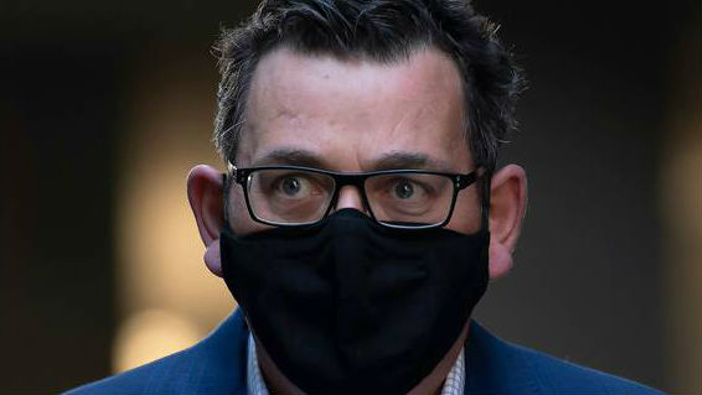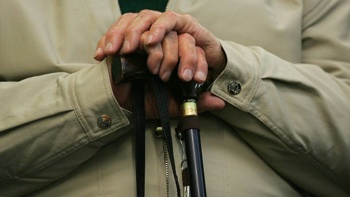Victoria has recorded its worst daily death toll since the pandemic began after another 25 people died due to the virus.
Victoria has now lost 334 people to coronavirus.
There were always fears Victoria could lose more people to coronavirus after health authorities confirmed yesterday there were 664 people in hospital with 40 in the ICU and 29 on a ventilator.
The state also recorded another 282 new coronavirus cases, a slight increase from yesterday's 279 cases.
Victoria extended its state of emergency for another four weeks yesterday.
Announcing the extension on Sunday, Premier Dan Andrews said it was unlikely Victoria would be virus-free for a long time.
"Even when this second wave is over, we will see cases, we will see outbreaks, that's just a function of this thing," Andrews told reporters.
"The notion of completely extinguishing it and never seeing it again, I think that would be an unlikely outcome."
Victoria's state of emergency, which was first declared in March, has been extended for another four weeks until 11.59pm on September 13.
In addition to the state of emergency, a separate state of disaster was declared earlier this month in response to the deadly second wave of coronavirus.
'Low double digits would be manageable'
Victoria is still a long way off double digit or single digit case numbers but those figures could be the key in getting the virus-weary state back open again, the president of the Australian Medical Association said.
Speaking to Today, the Victorian president of the AMA, Associate Professor Julian Rait, said "low double digits would be very manageable" for the state.
"I think many of my colleagues would like to see zero numbers but I think more realistically I think if it got down into the low double digits or even perhaps the single digits, that would be very manageable," Dr Rait said.
"The idea would be that at that point you could have very aggressive contact tracing and be able to find all the possible contacts an test and isolating them as required.
"So I think once the numbers get down to a very low level, it's a much more manageable situation than it currently is."
Dr Rait said Victoria could "look forward very likely to the measures being relaxed at that point".
"But obviously there's a serious discussion that the government and the community need to have about whether you go a bit further an consider an elimination strategy in Victoria as has been achieved in just about everywhere else in the Australia," he added.
Despite that, Victorian health officials and the state's premier have admitted they no longer see elimination as a possible option, something Dr Rait agrees with.
"I think it's a very difficult question. The statisticians tell me it could take many months of lockdown measures, perhaps not the full stage four, maybe stage three measures to do that.
"But nevertheless, that would come at significant economic cost and obviously that has flow on effects for the health of the community an their mental health and so on.
"So I don't estimate the difficulty of that decision but certainly it is something to consider once the case numbers fall to very low levels."
Meanwhile, Victoria's chief health officer Brett Sutton admitted the state could be waiting up to 18 months for a vaccine, warning the virus-weary state "we have to prepare ourselves for the long haul".
Prof Sutton told reporters yesterday he hoped a vaccine would be available by early 2021.
"I hope that it's not 12 to 18 months, but we have to prepare ourselves for the long haul," he said.
Despite Victorians potentially waiting more than a year for the vaccine, Prof Sutton said thankfully most coronavirus measures – including social distancing, hand hygiene and mask wearing – were simply part of people's behaviour now.
"I think there are some things that are now clearly embedded in our psyche … these are the things that are going to start to embed behaviourally in our lives," he said.
Take your Radio, Podcasts and Music with you










